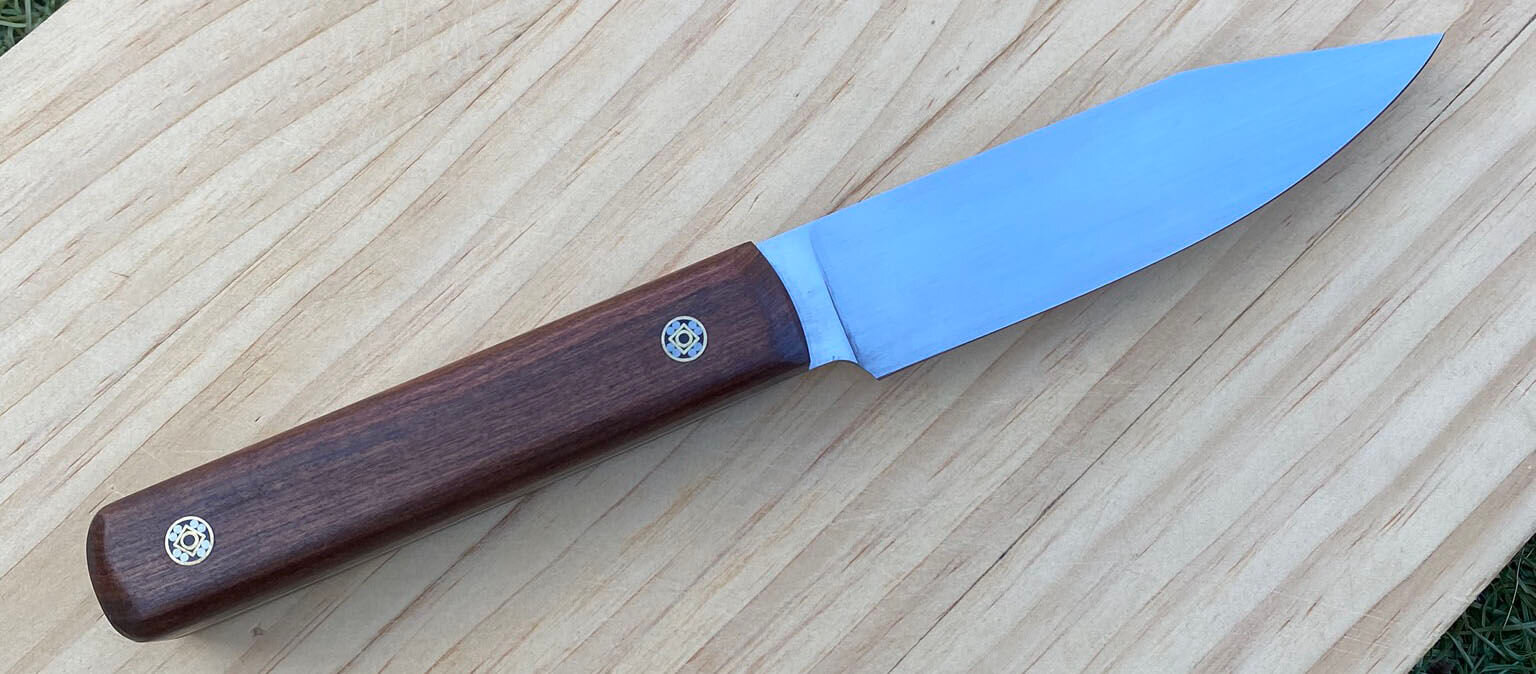
Knife Care
High quality, hand-made knives will perform better and last longer when they are given proper treatment and maintenance.
Below are some basic steps to take proper care of your purchase:
Basic Knife Care
Hand-wash ONLY. Or at a minimum rinse with clean water and wipe dry between and after use. Avoid fully submerging the knife into hot water.
NEVER put your knife through a dishwasher or leave soaking in water, this will lead to rapid corrosion on both Carbon Steel and Stainless Steel knives. High temperatures of a dishwasher can cause handle cracks.
DO NOT allow food and/or excessive water to remain on the blade, this will also cause rapid corrosion.
ALWAYS ensure the entire knife is completely dry before storing it, I recommend a universal knife block or magnetic wall for storage when not in use.
DO NOT leave the knife in the sheath for extended periods of time, any moisture that develops will be trapped and will cause rust on the blade.
Carbon vs Stainless Steel
Carbon Steel
High carbon steel used for knives is a simple combination of iron and carbon, typically containing 0.7 - 0.9% carbon and minimal alloying elements. When a carbon steel is heat treated properly it can retain an edge for longer than a stainless steel. It does however develop a patina. Keep it clean and dry and you will dramatically increase the lifetime of your purchase.
Stainless Steel
Stainless steel while having a combination of iron and carbon similar to carbon steel has other alloying elements that significantly increase the corrosion protection of the blade. Stainless Steel, as the name suggests is stain LESS not Stain NEVER Steel. It will rust if left soaking in water or put through a dishwasher. Wipe with hot soapy water, DO not submerge in water.
Carbon Steel Patina
Patin on a Custom Forged Chef Knife
What is a patina?
A patina is a protective layer that develops on the surface of a Carbon steel knife. It protects the blade from further corrosion and will develop with use of the knife. The patina will develop on the most used sections of the blade, as you can see in the photos of this custom chef knife. Specific foods such as lemons are prone to causing a rapid patina on a knife. This is normal for carbon steel and you should not stress over its occurrence.
While a patina is expected to develop, Carbon steels are quite prone to corrosion. This corrosion can develop surprisingly quickly, leaving a few drops of water on a knife overnight will most likely have caused rust by the next morning.



